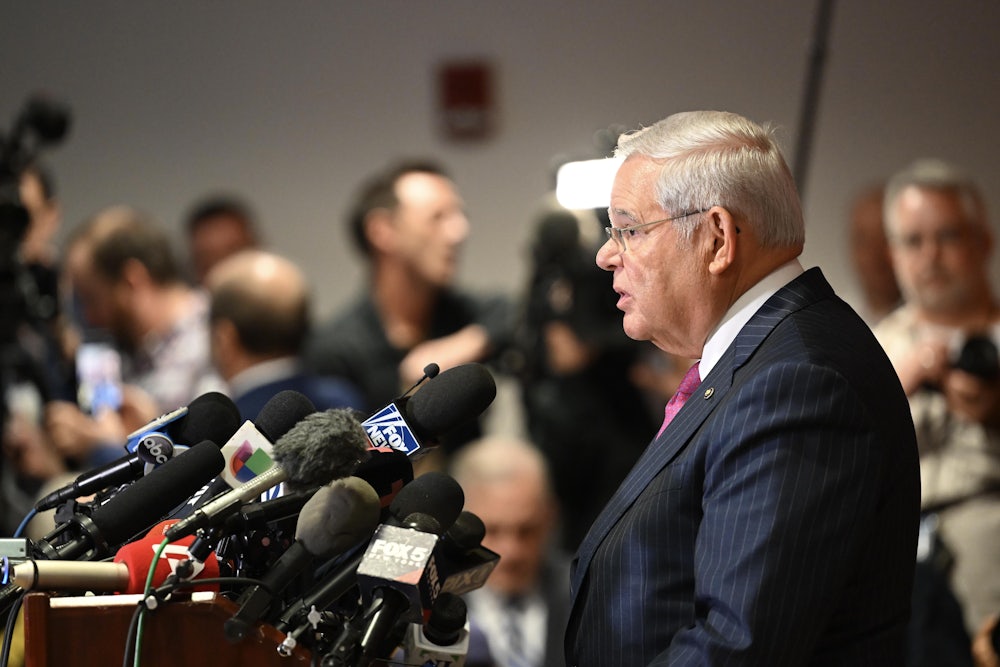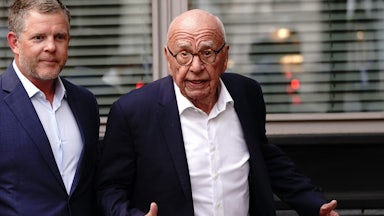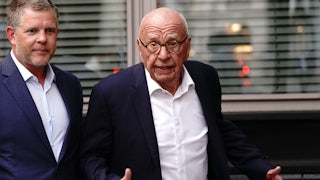The pile-on has begun.
Several Democratic senators have called on Senator Bob Menendez to resign, after he was indicted on federal bribery charges last week for allegedly accepting cash, gold bars, a luxury car, and other payments in exchange for using his influence as Senate Foreign Relations Committee chair to benefit three businessmen and the Egyptian government.
Nonetheless, Senate Majority Leader Chuck Schumer has to this point refrained from going so far as calling on him to resign. “Bob Menendez has been a dedicated public servant and is always fighting hard for the people of New Jersey,” Schumer said in a statement last week. “He has a right to due process and a fair trial.” Pressure is starting to mount on Schumer, however, with more than a dozen Democratic senators, including Menendez’s home-state colleague Cory Booker, calling for their embattled colleague to step aside.
What started as a trickle, with only Senator John Fetterman last week joining various House and Garden State Democrats in calling for Menendez to resign, became a flood on Monday evening and Tuesday, as more and more came out against him. Many of the Senate Democrats who have condemned Menendez are up for reelection in 2024, including Senators Sherrod Brown of Ohio, Tammy Baldwin of Wisconsin, Jon Tester of Montana, Jacky Rosen of Nevada, Bob Casey of Pennsylvania, Elizabeth Warren of Massachusetts, and Martin Heinrich of New Mexico—a possible indication of the Menendez’s case’s potential to become a political headache for vulnerable senators. Casey, Rosen, and Tester’s campaigns, which have each received contributions from Menendez’s leadership committee this cycle, also said they would donate those funds to charity. (The National Republican Senatorial Committee had already singled out Casey, Tester, and Brown for not calling on Menendez to resign.)
Booker, the junior senator from New Jersey, may have been the biggest blow to Menendez. He was a staunch Menendez defender after his first indictment, on bribery charges in 2015, and testified as a character witness in that trial.
“Stepping down is not an admission of guilt, but an acknowledgment that holding public office often demands tremendous sacrifices at great personal cost,” Booker said in a statement.
For his part, Menendez has given no indication that he will willingly end his political career in the near future. This is not the first time Menendez has faced the scrutiny of the federal justice system, but the 2015 charges resulted in a hung jury in 2017. Menendez then won reelection in 2018.
Menendez struck a defiant note on Monday, avowing his innocence in remarks before the press in his hometown of Union City, New Jersey. “I firmly believe that when all the facts are presented, not only will I be exonerated, but I will still be New Jersey’s senior senator,” Menendez said, indicating that he is not only planning on staying in office but may also run for reelection.
Because the decision is ultimately Menendez’s, there may be no real downside for these senators to call on him to resign. (Menendez has temporarily stepped down from this position in accordance with party rules.) The senators up for reelection in 2024 have staked out their positions now, meaning that they can avoid future attacks from Republicans on the issue.
“They don’t want to spend the next week or six months answering questions about Bob Menendez,” said a former Democratic Senate aide. “This puts that issue to bed for them.”
Many powerful New Jersey Democrats have also called on Menendez to resign, including Governor Phil Murphy, the chair of the state Democratic Party, the state Senate president, and the state General Assembly leader. Several Democratic representatives in New Jersey’s House delegation have also called on Menendez to step down—with the notable exception of his son, Representative Robert Menendez Jr.
Menendez is a strong fundraiser, and has helped his fellow Democrats in the 2022 and 2024 election cycles with contributions from either his reelection committee or New Millennium, his leadership PAC. Along with Casey, Rosen, and Tester, Fetterman pledged to return the donation Menendez gave his campaign in 2022. Other Democratic senators have remained quiet about their plans.
Schumer remains the loudest voice to stay quiet. There is precedent for party leaders keeping their powder dry when a member of Congress is indicted. In 2015, then–Minority Leader Nancy Pelosi did not immediately call on Representative Chaka Fattah to resign when the Justice Department indicted him. When Senator Ted Stevens, a GOP elder statesman, was indicted on federal charges in July 2008, he did not initially face calls to resign; Minority Leader Mitch McConnell only called on Stevens to resign when he was found guilty in October that year. (Stevens was defeated in the 2008 election, and a judge dismissed the charges against him in 2009.)
Similarly, then–Minority Leader Harry Reid did not pressure Menendez to step down the first time he was indicted, in 2015. “Our justice system is premised on the principle of innocent until proven guilty and Senator Menendez should not be judged until he has his day in court,” Reid said in a statement at the time.
Deference to the individual is a critical element of the Senate as an institution; senators may decline to pass judgment on an indicted colleague, as they would on one who is aging or ailing. The upper chamber’s ethos is that if a senator needs to leave office, their constituents should be the ones to kick them out. This perspective was embodied by a Tuesday post on X from GOP Senator Tom Cotton, who wrote that the senator “should be judged by jurors and New Jersey’s voters, not by Democratic politicians who now view him as inconvenient to their hold on power.”
Moreover, even a senator’s party leader cannot compel them in the same way that their counterpart might be able to in the House. Even if Schumer called on him to resign, Menendez would not be obligated to obey.
Schumer did call for Minnesota Senator Al Franken to resign amid sexual misconduct allegations, but the circumstances were different: At that point, nearly three weeks into the scandal, Schumer joined dozens of Democratic senators who had already called Franken out. Even then, it’s worth remembering, the choice was still ultimately the former Minnesota senator’s. Menendez, however, may feel no such compunction.
One current Senate Democratic aide who was present for Franken’s downfall predicted that Menendez would not react in the same way. “‘Menendez’ and ‘humility’ shouldn’t be in the same sentence,” the aide said. “I think the only way he steps down is if there’s enough votes for an expulsion resolution.”










